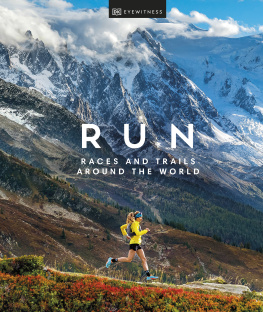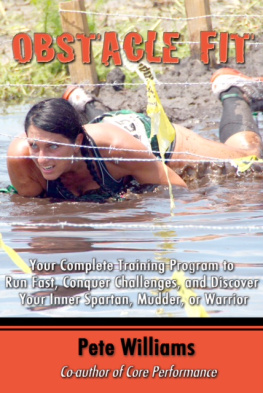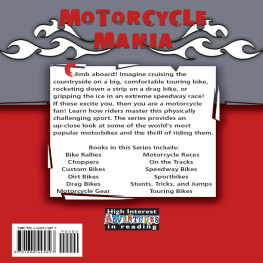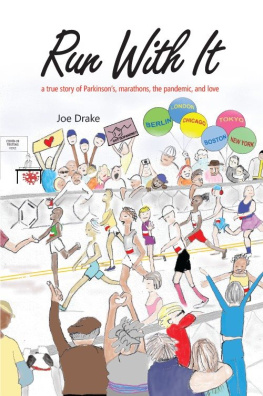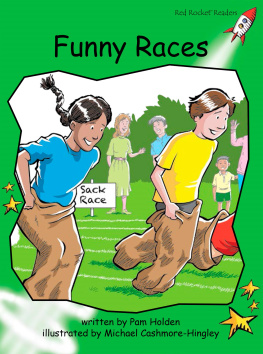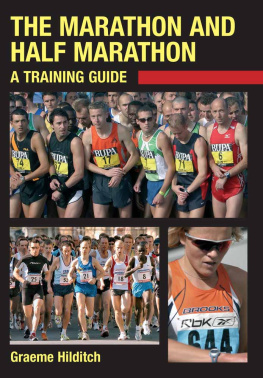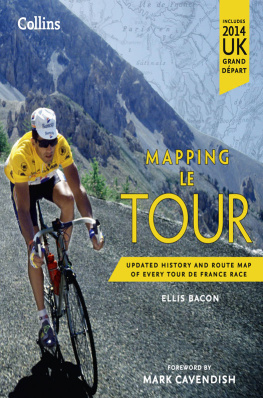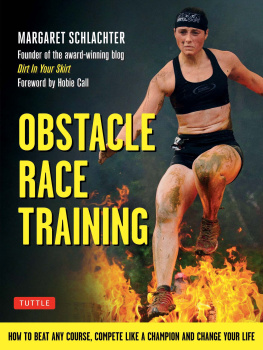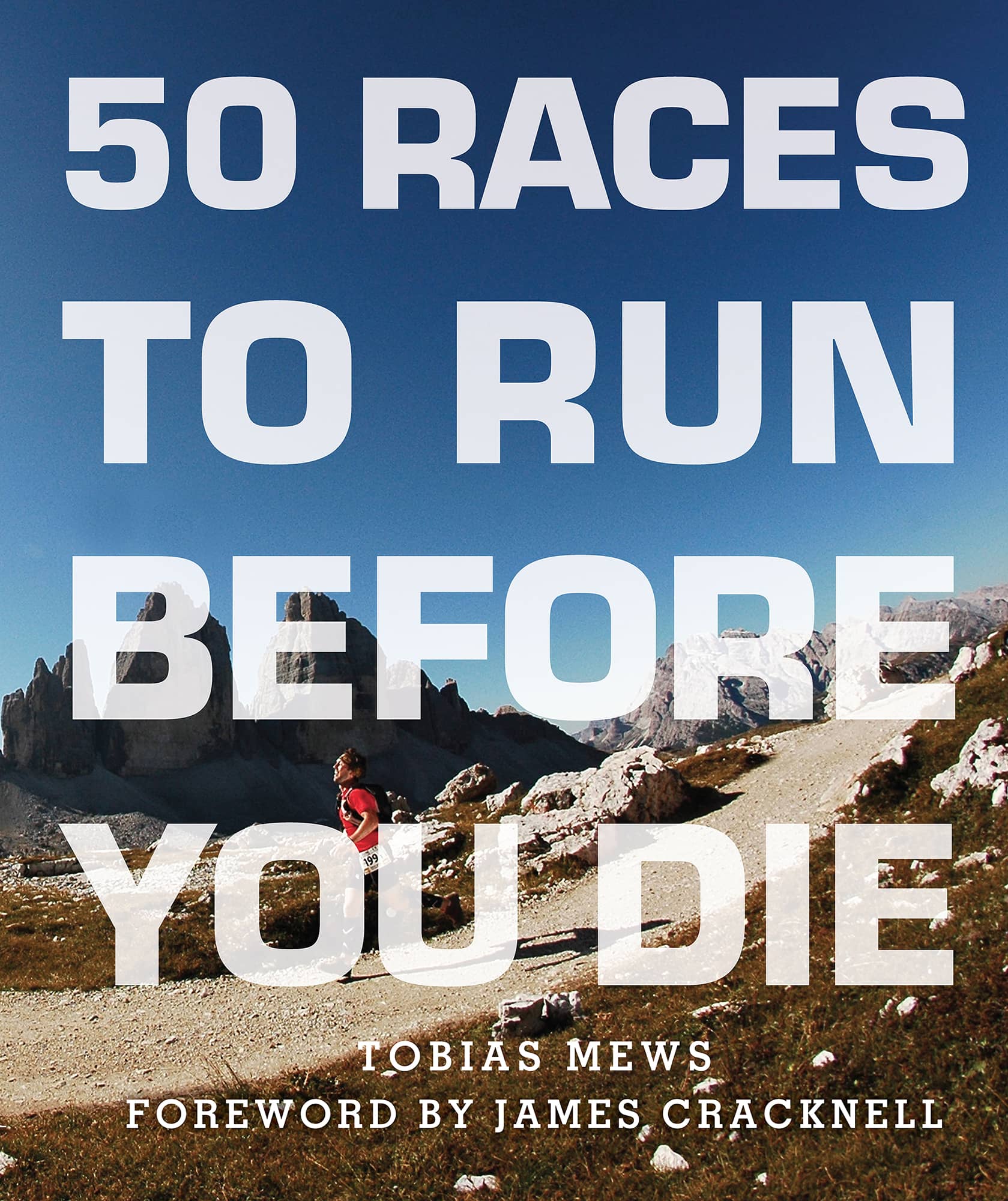50 RACES TO RUN BEFORE YOU DIE
TOBIAS MEWS


First published in Great Britain
2016 by Aurum Press Ltd
7477 White Lion Street
Islington
London N1 9PF
www.aurumpress.co.uk
Text copyright Tobias Mews 2016
Foreword James Cracknell 2016
Tobias Mews has asserted his moral right to be identified as the Author of this Work in accordance with the Copyright Designs and Patents Act 1988.
Digital edition: 978-1-78131-608-5
Softcover edition: 978-1-78131-444-9
All rights reserved. No part of this book may be reproduced or utilised in any form or by any means, electronic or mechanical, including photocopying, recording or by any information storage and retrieval system, without permission in writing from Aurum Press Ltd.
Every effort has been made to trace the copyright holders of material quoted in this book. If application is made in writing to the publisher, any omissions will be included in future editions.
A catalogue record for this book is available from the British Library.
For my mother, Anna Clemence Mews
CONTENTS
Guide
FOREWORD
The Marathon des Sables.
F or me, the thrill of racing is surpassed by that feeling of adrenalin at the start. Knowing that your mind is going to ask your body tough questions it will try to avoid answering, but ultimately your success and enjoyment will be determined by how well you answer those questions.
Will you reach the finish line? How fast will you be? Have you reached new limits? And the rush of endorphins and adrenaline when you pass through the tape knowing you have given your all.
Competition has always been a large part of my life. But my proudest moment in sport was not crossing the line at the Sydney or Athens Olympics but lying in a quarantine room on the day of the Opening Ceremony at the 1996 Atlanta Olympics. After four years of training I contracted tonsillitis and was pulled out of racing on the day the Games started. Lying in that quarantine room/broom cupboard it would have been easier to have quit and got a job because there was no guarantee that the same thing wouldnt happen in four years time. But I decided that I wasnt going to end my Olympic career not having made the start line.
Making that decision under those circumstances and having experienced those lows made me a stronger athlete at the Sydney Olympics four years later. That, as well as training with, and hanging off the coattails of Sir Steve Redgrave and Sir Matthew Pinsent.
Since retiring from rowing I have enjoyed the opportunity to test myself on some of the most challenging of endurance races, including crossing America, facing down the heat and sands of the Sahara Desert at the Marathon de Sables, rowing across the Atlantic and racing to the South Pole. Whether its as part of a team or as an individual the common theme has been to learn a new skill, experience new surroundings, push my mind and body to the limit. But more importantly being a small speck in a massive environment is totally different to the often sterile world of sport.
Running is arguably the most pure, natural, time-efficient sport and can be done in virtually any location. No matter how experienced you are or how much training you have done, you can still go out there and run. With all the time we now spend at computers and desks, its the best way to get away and zone out.
In 50 Races to Run Before You Die, Tobias has brought together some of the worlds best races. Those that get you out of bed on a Saturday morning (despite your partner thinking youre weird) and into your local park, to races that encourage you to dream big and test yourself, or even provide a very worthwhile excuse to visit the Cayman Islands. Whether its the muddy obstacle courses that are all about fun, to the heights of Englands fells with trail runs that open you up to the beauty to be found here in Englands hills, these races are iconic as much for their challenges as for their locations.
I suffered from horrendous ulcerated blisters when I was racing to the South Pole, partly due to the extreme conditions but mostly due to me making the wrong decisions at the crucial time. I was getting my feet treated by a doctor at the South Pole when a bloke stuck his head into the tent and sympathetically said you think those are blisters you should do the Marathon des Sables! I signed up as soon as I got back to the UK. The chance to prove I could make the right decision at the right time in a competitive situation would mean Id learned my lessons from Antarctica. The fact that I finished the highest place a Brit had achieved in the races 25 year history showed that I made the right decisions.
Whichever run you pick to start you off and whatever your goal for running, I can assure you that when you are amongst the runners in a pack hearing the crowds applaud you on, or experiencing the quiet moments on a open stretch of track in the face of a new challenge, you might just find you surprise yourself. And with this selection of epic races, you might just want to run them all.
James Cracknell
INTRODUCTION
A s I write up the final race in this book, recalling my last 200-mile journey across the mountainous spine of Wales, I look downwards towards my feet. My ankles have been consumed by my calves, my swollen feet make my flip-flops look as if Im wearing a thong, skin is missing in between some of my toes and at least one nail might soon be lost but none of these things matter, because the satisfaction of finishing the is worth every ounce of discomfort. It is an iconic race steeped in history and legend and for me, one of the best races to run before you die.
Over the course of the past 10 years, Ive raced across five continents and a dozen countries. Ive run through deserts and jungles, across islands and mountain ranges, along coastlines, through forests, woods, cities and villages. After a moment of procrastination, Ive worked out that in order to research the 50 races in this book Ive raced over 2,700 miles and climbed (and descended) over 116,000 metres. Thats the equivalent of 13 times up and down Mount Everest, and 10 miles beyond the edge of outer space. The figures make me want to sit down, have a stiff drink and book a massage.
I long ago realised Id never be good enough to become a professional athlete. Having only started running seriously at the age of 31, I was a bit behind the learning curve. But what I did possess was curiosity and a willingness to explore what I was capable of. Indeed, the endorphins of finishing a race were so great, all the pain that Id experienced was erased. And if I had said, never again at the end of a race, before I knew it, I was researching my next one: its addictive.


